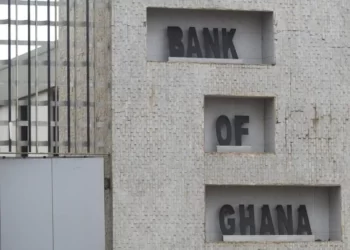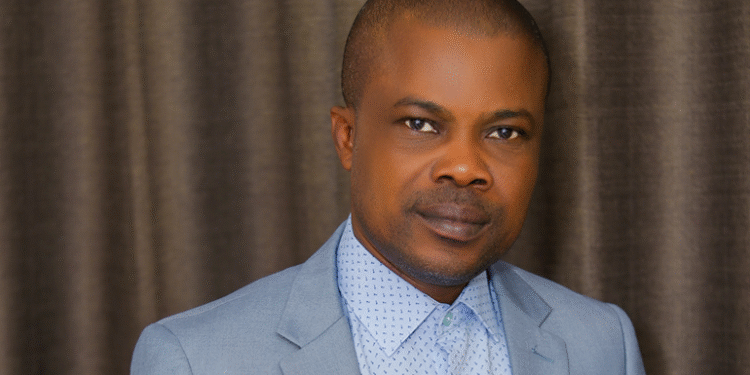Government of Ghana’s plan to raise GH¢75.7 billion from the domestic treasury market in the fourth quarter of 2025 has hit a major setback as investors continue to show waning interest in short-term government securities despite rising interest rates.
According to the latest auction results released by the Bank of Ghana (BoG), the government failed to meet its treasury bill target for the fourth consecutive week, underscoring growing investor caution in the debt market. The results show a 33% undersubscription of the short-term instruments, despite higher yields across all tenors.
The government managed to secure GH¢4.50 billion out of a total bid amount of GH¢4.51 billion, far below the auction target of GH¢6.83 billion. The persistent shortfalls raise questions about investor confidence and liquidity levels within the domestic financial system.
Breakdown of the Auction Results
The 91-day bill continues to dominate the treasury market, accounting for about 80% of total bids. Investors tendered GH¢3.61 billion, of which GH¢3.60 billion was accepted. The 182-day bill attracted GH¢617.63 million, with all bids accepted, while the 364-day bill saw GH¢282 million in bids, of which GH¢279 million was taken up.
Despite these inflows, the government’s borrowing momentum remains below target, signaling tightening investor demand even as yields trend upward.
Interest Rates Continue to Climb
Interest rates on the yield curve have continued their upward trajectory as the government seeks to entice investors back into the market.
The 91-day bill yield climbed by 11 basis points to 10.92%, while the 182-day bill jumped to 12.61% from 12.49% the previous week. The 364-day bill also increased slightly by 6 basis points to 11.01%.
Ordinarily, such increases would attract stronger investor participation. However, the continued undersubscription suggests that investors may be demanding even higher premiums due to perceived fiscal risks or liquidity constraints in the banking sector.
GH¢75.7bn Borrowing Target Faces Pressure
The government’s Q4 2025 borrowing plan is one of its most ambitious yet. Out of the GH¢75.7 billion it plans to raise, approximately GH¢67 billion will go toward rolling over maturing debts, while GH¢8.12 billion represents fresh funds meant to finance budgetary needs and public expenditure.
The government’s dependence on short-term instruments like the 91-day bill, which dominates the market, has raised sustainability concerns. Analysts warn that such a structure exposes the government to frequent refinancing risks and higher rollover costs, particularly if interest rates continue to rise.
Falling Inflation, Yet Weak Confidence
Interestingly, the undersubscriptions come at a time when Ghana’s inflation rate is on a declining trend, a development that should ordinarily improve real returns on fixed-income securities. However, market sentiment appears unmoved.
Some analysts believe investors are diverting funds to alternative investment options with better risk-adjusted returns or simply waiting for more favorable macroeconomic signals before committing to longer maturities.
Others point to ongoing liquidity tightening in the banking sector, with institutions preferring to hold cash positions amid regulatory pressures and rising credit risk exposures.
Market watchers, meanwhile, have urged the government to recalibrate its borrowing strategy, arguing that the heavy reliance on short-term bills could create refinancing vulnerabilities.
According to an Accra based financial analyst, the government must balance its borrowing mix by shifting toward medium- to long-term bonds, which provide more stability and reduce rollover risks.
He added that while T-bills are a quick source of liquidity, overdependence exposes the government to continuous refinancing cycles, particularly when investor appetite weakens.
Implications for Fiscal Management
The persistent undersubscription poses potential challenges to Ghana’s fiscal management efforts in the final quarter of 2025. If the trend continues, the government may face funding shortfalls that could affect public expenditure, debt servicing, and development projects.
Moreover, the government may be forced to raise rates further to attract investors, potentially driving up domestic borrowing costs and worsening debt sustainability metrics.
The situation also casts a shadow on the government’s fiscal consolidation agenda under its IMF-supported programme, which emphasizes prudent debt management and sustainable financing strategies.
Outlook: Can Confidence Be Restored?
As the year draws to a close, attention now shifts to how the government and the Bank of Ghana will respond to the growing challenges in the treasury market.
Experts believe restoring confidence will require greater market transparency, credible fiscal discipline, and possibly policy incentives that enhance liquidity among domestic investors.
For now, the government’s GH¢75.7 billion borrowing ambition remains under pressure, and unless subscription levels improve, it risks entering 2026 with an even more precarious financing position.
READ ALSO:Eduwatch Boss Blames Rice Exports Ban over Food Glut, Demands NAFCO’s Resourcing























